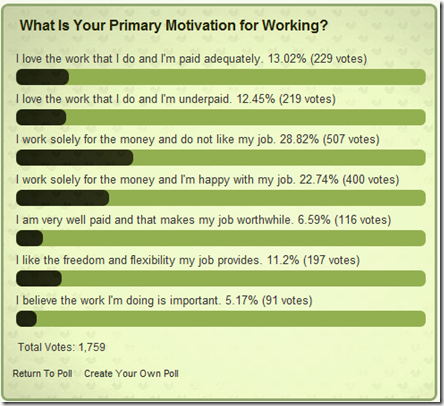Continued as a part of the New Year review blog posts. Out with the old, in with the new? Well, a year is a loooong time and there is a lot of old stuff that needs to be cleared off the schedule. If you run a small business, odds are you have people take on roles as the organization grows and not all the roles and all activities are in the best interest of the company. Even worse, some could be taking on too many roles while others are just hiding from the corporate axe. Finally, some could be doing a ton of mundane tasks with no value and can feel unappreciated for all their hard work while not understanding that it doesn’t matter.
I’m watching the Tim Tebow special on ESPN. Tim Tebow was a Florida quarterback, Heisman Trophy winner, 2x national champion, etc. The special follows him through the months leading up to the NFL draft and he is talking about his training session: Did I work the hardest? Did I stay the longest? A successful day is a day in which I become better than I was yesterday.
Businesses operate the same way. We’re only as good as we are this day / quarter / year. So this week we are running a special exercise that I hope brings more discipline into what we’re doing and how.
This week I asked all of my staff to send me a list of things they do. Office Space style: What it is you would say you do around here?
There are several reasons for this: I want to know what you’re wasting you’re the time on. I want to know what you’re doing. What is your primary responsibility? What is your secondary responsibility? What are some areas that you’re working on that I could develop into a full time role? What are some of the areas that I should remove from your schedule? Are you really spending that much time doing that?
Whose decision is it anyway?
What is everyone working on? If you’ve paid attention to e-myth, you wouldn’t need this exercise. Unfortunately, striking a balance between being an overbearing micromanager and inspiring leader that doesn’t make any decisions is very difficult.
If you have a good team around you, chances are that they have picked up some of the slack that you were not aware of. Or developed processes and means for dealing with the problems they encounter working with clients day-to-day.
In government that’s known as Form 114-A. In small business that’s called “I like working with Bob, can you transfer me to him?”
So here is where it gets ugly: Some employees will, from the most positive angle possible, waste a ton of your time and money. They don’t know that they are doing anything wrong – from their standpoint they are helping you. You don’t know any better either – from your standpoint they are robbing you blind. Reconciling the fact that someone is wasting their salary on mundane tasks goes across as well as “Ma’am, your baby is ugly.”
I’m particularly terrible about this. As a matter of fact, around the Orlando office I’m known as The Dreamcrusher. From the standpoint of my own ignorance, I always offered a honest opinion when I saw something heading for a sure failure. Most people tend to assume that the work just materialized out of nowhere and that the company with all it’s problems and solutions just appeared out of nowhere. No, motherfucker – I’m the big bang. I know where I’ve cut the corners, I know where I just got things to work and I’ve tried to fix certain things over and over again to the point that I’ve been where most people are when they propose solutions to problems that have existed for a while. Not all of our problems are caused by negligence you know ; )
So what are we doing different this year? Well, personal comment first:
I’m big on roles. Everyone has a primary role – whatever it is they are hired to do. Then there is their secondary support role – something that they are capable of doing to help the person that’s an expert / in charge of doing.
The greatest thing you can do in your primary role is automate it and move yourself on to the next problem. Some employees cannot grasp this concept. They feel like fixing problems will remove the reason for their employment. At McDonalds, yes. An automated drink dispenser has sent many back to the vocational school. In a professional organization – no. We value problem solvers. If you’ve figured out how to remove personnel (ie: human incompetence factor) from an equation you’re both worth more and likely capable of solving bigger problems.
Here is what I asked for:
- List of things you’re responsible for
- List of things you work on
- Your daily schedule
Let’s break it down:
1. List of things you’re responsible for – the only opinion that matters is mine. I want to know what my employees feel is their primary cause for employment. This is critical because if they are focusing on areas that I do not value they are not moving towards the goals that I have set for them. They could be the best damn fish slicer in the world but if their job is tweaking SpamAssassin rulesets, we both need to refocus.
2. List of things you work on – the only opinion that matters is mine. I want to know what you’re doing with the 8 hours you spend at work. Browse the web? Update Facebook? Build beta environments? Reboot servers? What? What? This is critical – most people in professional services firms do not know everything their employees do. Trick is, your employees know what you need to be doing better than you do – from an operational sense at least. What they do not know is how this fits into the solution you are trying to build. These two need to be on the same page – and it’s the sole purpose of this exercise.
3. Your daily schedule. This one is split down the middle: Your sales people shouldn’t be making assigned client calls in the morning – nobody is going to pick up the phone on the west coast at 9:30 AM EST. If they do, you’re in trouble! the name of the game here is optimization: are the tasks that fill up your 8 hour day used in the best possible way?
Optimization
Find out where your employees are wasting time – help them understand what they are doing wrong and fix it.
Find out where your employees have uncovered potential in operations – and invest in it.
Find out if your employees are making the best of their workday – and rearrange it until it’s perfect.
Find out if your employees are doing multiple jobs – document it and make them a manager.
Find out if your employees are halfassing multiple jobs – cut their responsibilities and refocus them.
Find out if your employees are slacking on their sole job – and fire them.
Realize you’re working with human beings. Most people really do try their best. But their best needs to be aligned with your best interests and their expertise. Some people are organized. Some people are driven. Some people are just full of crap. There is a role for everyone. But if you don’t ask, and don’t make it a point to guide them to what you want them to be doing, then it’s your fault you’re underutilizing or beating down your team.
Most people want to be good at their jobs. Most people want to do what’s best for the client. Unfortunately, what is the best for the client may not be what’s in the best interest of the organization. What wins? Well, depends on whether you like receiving your paycheck or not. That’s not to say that you’re fired if you don’t do it my way – but if I’m unable to convince you that you need to follow my plan (that a lot of other people are already aboard on) then you might not be a fit going forward. There is a middle ground between completely heartless and completely compassionate. But it has to be driven by reason and the agenda.
Your job as the boss is to make sure your team is the best they can be. If they aren’t, that’s your fault. Employees job is to get things done in a way that moves the organization forward. If they don’t, they aren’t employees anymore.
But if everyone is not on the same page, you’ve got a catastrophe on your hands. People feel overworked, underappreciated, underpaid, unloved and lose their sense of being a critical part of the team. Listen, if you weren’t valuable, you wouldn’t be employed. If you are employed, you need to kick ass in the direction that the guy with the corner office points to.
Business is a team effort. Get to know it.




 For the less coherent, more grammatically correct realtime insight, follow me on Twitter at
For the less coherent, more grammatically correct realtime insight, follow me on Twitter at